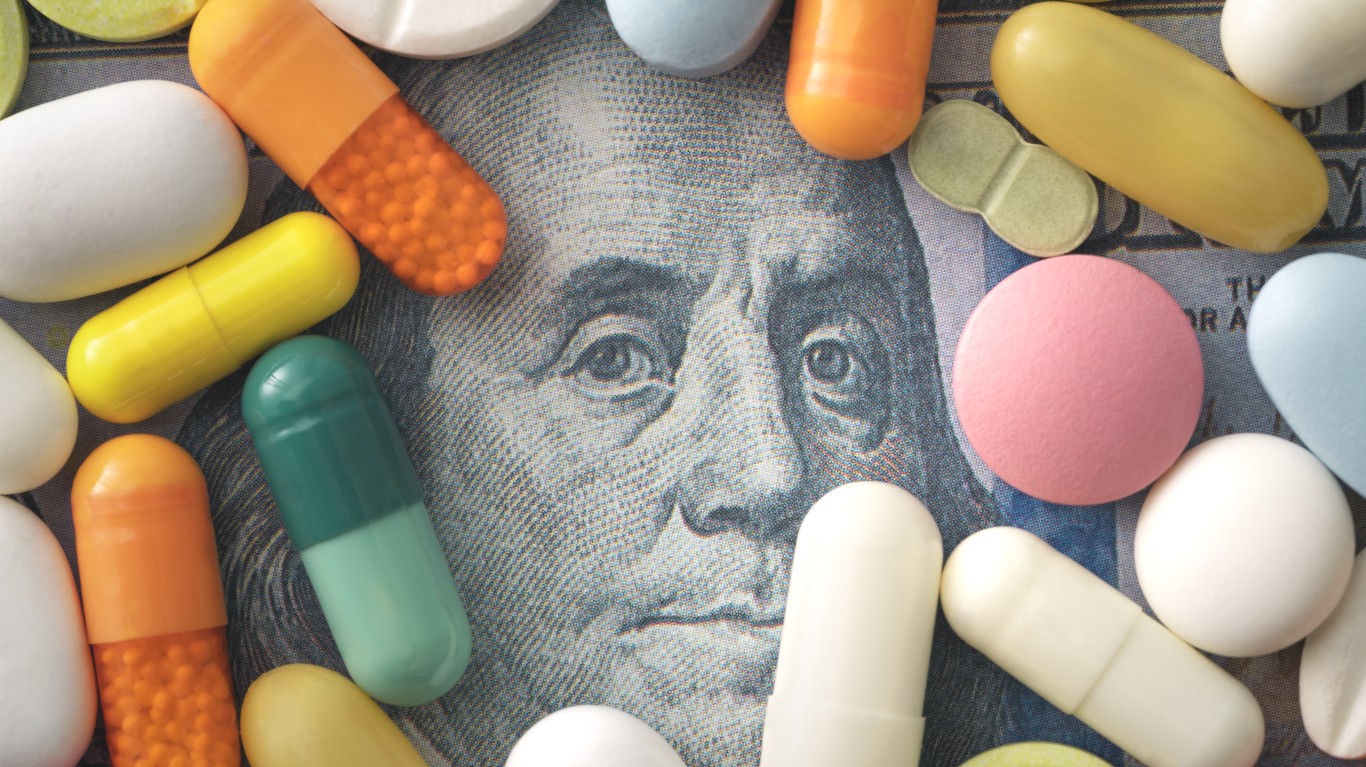UnitedHealth Group Inc. (NYSE: UNH) is still relatively new as a member of the Dow Jones Industrial Average (DJIA). Its stock gained a whopping 41% in 2013, much better than the 29.6% of the S&P 500 and 26.5% for the DJIA. Now the question is how well it can do for investors in 2014.
24/7 Wall St. has created a bullish and bearish case for each DJIA stock and many key S&P 500 stocks for its 2014 outlook series. With the government health care changes taking place, this is one of those situations where things could go very well or very wrong.
The biggest factor to consider here is how UnitedHealth deals with the zany environment of health care reform. All that has really been reformed is that insurers have to accept everyone now regardless of health conditions, while at the same time they have absolutely no control over the real costs of health care.
Wall Street strategists are forecasting higher price targets for the S&P 500 and Dow, but this specific stock faces hurdles and has opportunities that the other Dow stocks do not have. The only real impact we envision from the Federal Reserve tapering bonds and rising interest rates is if the rates rise so much that the economic recovery gets crimped.
The outlook for UnitedHealth is still higher. Analysts have a consensus price target of almost $81, but Deutsche Bank set an $85 target in the first full week of 2014 with its upgrade. This sent shares to a new high of more than $77. Its current dividend yield for 2014 is 1.5%, and frankly this can go much higher if the health care changes to not wipe out too much of its profits in 2014, 2015 and 2016.
The bullish case is one where the surviving health insurance companies succeed in much of the same way as a regulated utility. These companies have merged into a near cartel, and UnitedHealth is the biggest of them all, with a market value nearing $80 billion. We also think that Standard & Poor’s would not have added this company to DJIA if they thought chances were high that it would topple under Obamacare. Another bullish case is that investors forget about evaluating this one as a health care company, because after all it is merely a financial risk-taker that is making a bet it can charge more than it has to pay out in health insurance claims.
The bearish case is one in which UnitedHealth is overrun by costs that cannot be offset by more price increases. A real risk here is that the politicians somehow get to twist the blame for the latest snafu back on the insurers, even though that is not the case. The public also has no love for insurers, with the simplest reasons being that this is the financial interface point to health care. Others feel that insurers are denial of payment and reimbursement factories.
We worry from the investment point in health care outfits that the health care reform puts the whole burden on the insurers and almost none of the burden on those who administer and bill for health care. We also worry that the public seems to care less about insurers, even if that means an ultimate takeover. Before you get bogged down in our own worries, the stock did just hit a new high, despite all of these long-term risks.
Maybe things just are not that bad here and elsewhere in health care reform.
100 Million Americans Are Missing This Crucial Retirement Tool
The thought of burdening your family with a financial disaster is most Americans’ nightmare. However, recent studies show that over 100 million Americans still don’t have proper life insurance in the event they pass away.
Life insurance can bring peace of mind – ensuring your loved ones are safeguarded against unforeseen expenses and debts. With premiums often lower than expected and a variety of plans tailored to different life stages and health conditions, securing a policy is more accessible than ever.
A quick, no-obligation quote can provide valuable insight into what’s available and what might best suit your family’s needs. Life insurance is a simple step you can take today to help secure peace of mind for your loved ones tomorrow.
Click here to learn how to get a quote in just a few minutes.
Thank you for reading! Have some feedback for us?
Contact the 24/7 Wall St. editorial team.



